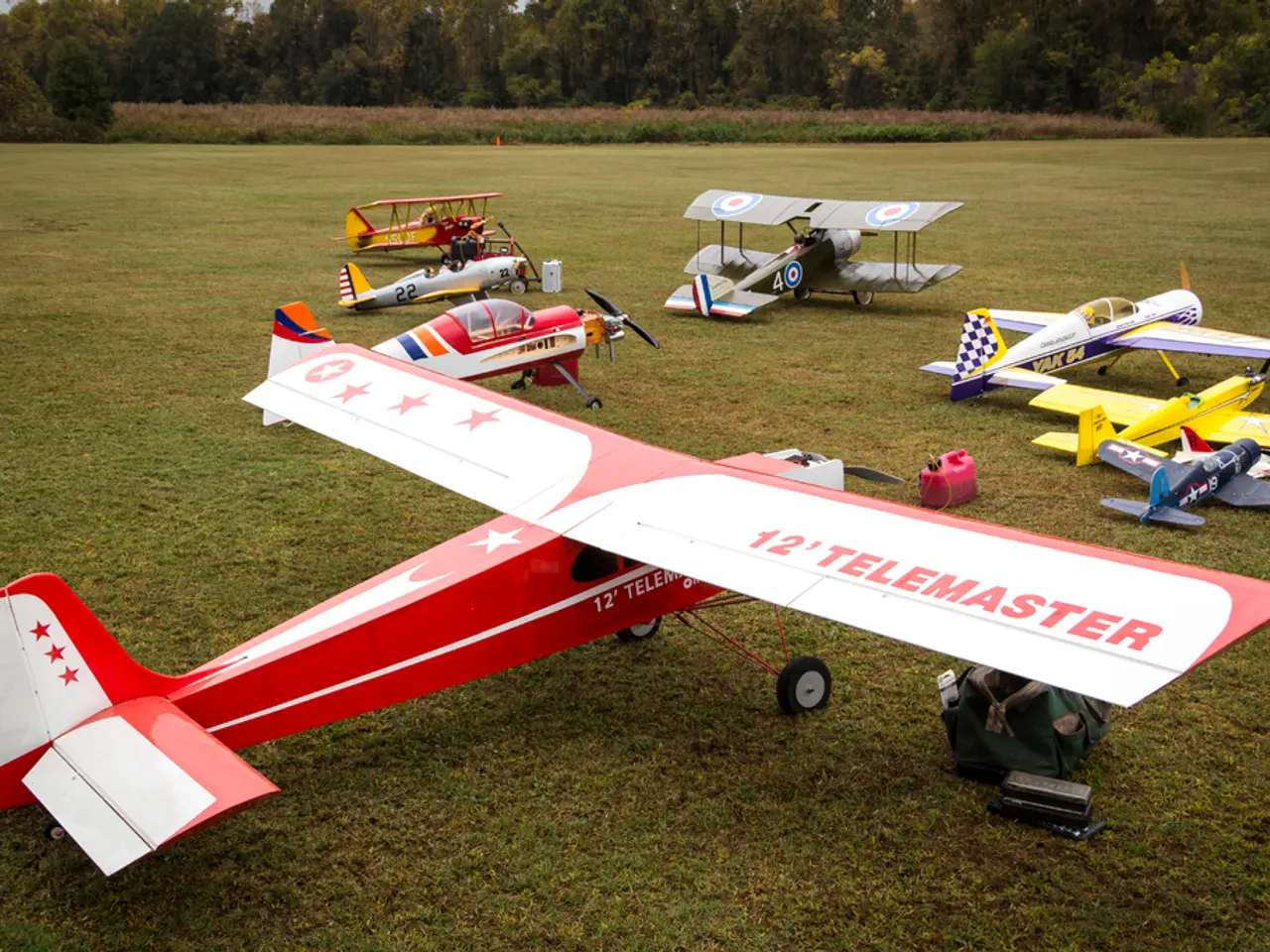Airbus Helicopters' PioneerLab Takes Flight, Pushing the Boundaries of Rotorcraft Technology
Airbus publicly debuts PioneerLab, a dual-engine flying research facility
Airbus Helicopters has unveiled its new twin-engine technology demonstrator, the PioneerLab, based on the H145 platform. The PioneerLab is part of Airbus's range of FlightLabs, designed to test technologies that reduce helicopter emissions, increase autonomy, and integrate bio-based materials.
The flight campaign for PioneerLab has commenced at the Airbus Helicopters' Donauwörth site in Germany. The PioneerLab is a nimble and efficient test bed, as noted earlier, focusing on testing additional technologies for reducing helicopter emissions, increasing autonomy, and integrating bio-based materials.
One of the key technologies being tested on the PioneerLab is the rotor strike alerting system. Furthermore, Airbus Helicopters will flight-test structural components made from bio-based and recycled materials on the PioneerLab, with the aim of reducing the environmental footprint across the entire aircraft life cycle. The company intends to produce the new parts using processes that reduce material and energy consumption and improve recyclability.
The PioneerLab is designed to demonstrate a fuel reduction of up to 30% compared to a conventional H145, through the use of a hybrid electric propulsion system and aerodynamic improvements. The next phase for PioneerLab will involve testing an automated take-off and landing system.
In addition to the rotor strike alerting system, further research activities on the PioneerLab will include the integration of the latest digital technologies into the aircraft's flight control system and associated sensors to increase autonomy and safety during critical flight phases such as take-off and landing. This aligns with Airbus Helicopters' strategy to bring incremental innovation to improve current products and mature technology for future platforms.
The PioneerLab is partially co-funded by the BMWK, the Federal German Ministry for Economic Affairs and Climate Actions through its national research program LuFo. This initiative underscores Airbus Helicopters' commitment to developing cutting-edge autonomous and optionally piloted technologies using the reliable H145 as a testbed. This aligns with broader industry trends toward autonomy, enhanced safety, and mission adaptability in rotorcraft aviation.
[1] For more information on Airbus Helicopters' ongoing research and development in the field of autonomous and optionally piloted technologies, please visit Airbus Helicopters' official website.
The PioneerLab's key features include the twin-engine H145 platform, offering proven reliability and performance, integration of autonomy-enabling technologies such as advanced sensors, artificial intelligence, and control systems, and the capability to support HTeaming, which allows cooperative operations between manned helicopters and autonomous systems, either as standalone or integrated into mission systems. The PioneerLab is also designed to explore future capabilities like optionally piloted operations and enhanced situational awareness.
As for future plans, PioneerLab supports Airbus's ongoing research and development to push the envelope of safe, autonomous vertical flight. It is intended to validate and demonstrate technologies that will be integrated into future helicopter designs, including improving mission flexibility and safety, augmenting pilot capabilities, and enabling new operational concepts like unmanned or optionally piloted helicopters. PioneerLab's work helps lay the foundation for next-generation rotorcraft concepts, including air mobility and unmanned systems.
No detailed further public disclosures about the very latest plans or specific timelines are available in the current search results. However, PioneerLab exemplifies Airbus Helicopters' commitment to developing cutting-edge autonomous and optionally piloted technologies using the reliable H145 as a testbed. This aligns with broader industry trends toward autonomy, enhanced safety, and mission adaptability in rotorcraft aviation.
- Airbus Helicopters is working on integrating the latest digital technologies into the aircraft's flight control system and associated sensors on the PioneerLab, with the aim of increasing autonomy and safety during critical flight phases, which is part of their strategy to bring incremental innovation to current products and mature technology for future platforms in the technology and aerospace sectors.
- The PioneerLab, partially co-funded by the BMWK, the Federal German Ministry for Economic Affairs and Climate Actions, is designed to test and validate technologies that reduce helicopter emissions, increase autonomy, and integrate bio-based materials, not only for Airbus Helicopters but also for the finance industry, as the research aligns with broader industry trends toward autonomy, enhanced safety, and mission adaptability in rotorcraft aviation.








